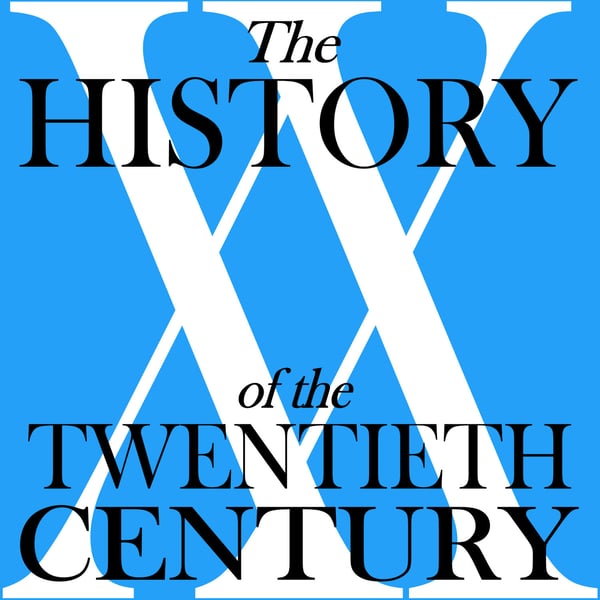024 How Does It Feel to Be a Problem?
The History of the Twentieth Century
Mark Painter
4.8 • 719 Ratings
🗓️ 13 March 2016
⏱️ 43 minutes
🧾️ Download transcript
Summary
Roosevelt tours America and runs for re-election. Ugly racial violence erupts in the South. An American citizen is kidnapped in Morocco, and somebody thought, "This would make a great movie."
Transcript
Click on a timestamp to play from that location
| 0:00.0 | The midterm elections of 1902 had gone well for the Republicans, and President Roosevelt's |
| 0:23.9 | popularity was growing. Even the potential embarrassment of his going bear hunting and not |
| 0:29.7 | bagging a bear had instead turned into the teddy bear craze. But the new president's first |
| 0:36.5 | foreign policy challenge was already brewing in the Caribbean, |
| 0:40.2 | as British and German naval squadrons blockaded Venezuela in retaliation for that country's failure to pay debts. |
| 0:48.4 | It was widely rumored that the Germans would take advantage of the debt crisis to acquire a naval base in America's backyard. |
| 0:57.0 | Welcome to the history of the 20th century. |
| 1:01.0 | The 20th century. Episode 24. How does it Feel to be a Problem? |
| 1:29.9 | The United States and Britain had come into conflict over Venezuela once before in 1895, seven years |
| 1:38.8 | ago. That dispute had involved the border between Venezuela and British Guiana. |
| 1:45.5 | The United States intervened diplomatically in the dispute at Venezuela's request, citing the Monroe Doctrine. |
| 1:53.4 | Now, the Monroe Doctrine, so-called because it was first articulated by U.S. President James Monroe, |
| 2:00.1 | states that the U.S. has opposed to any attempt |
| 2:02.8 | by a European power to take control of any of the independent nations in the new world. |
| 2:09.0 | At the time the Monroe doctrine was first articulated, the United States lacked the military power |
| 2:14.9 | to enforce it, but it stuck anyway, mostly because the British |
| 2:19.7 | supported it. Nineteenth-century British governments, with their strong free trade convictions, |
| 2:26.0 | judged that a new world full of small neutral states with whom Britain could trade on the same |
| 2:30.6 | terms as other European powers was preferable to a new world in which substantial |
| 2:35.3 | territories were controlled by rival colonial powers that would impose high tariffs on British |
| 2:40.4 | trade. |
| 2:42.5 | Which is ironic, because at the end of the 19th century, as the United States is becoming a great |
... |
Please login to see the full transcript.
Disclaimer: The podcast and artwork embedded on this page are from Mark Painter, and are the property of its owner and not affiliated with or endorsed by Tapesearch.
Generated transcripts are the property of Mark Painter and are distributed freely under the Fair Use doctrine. Transcripts generated by Tapesearch are not guaranteed to be accurate.
Copyright © Tapesearch 2025.

